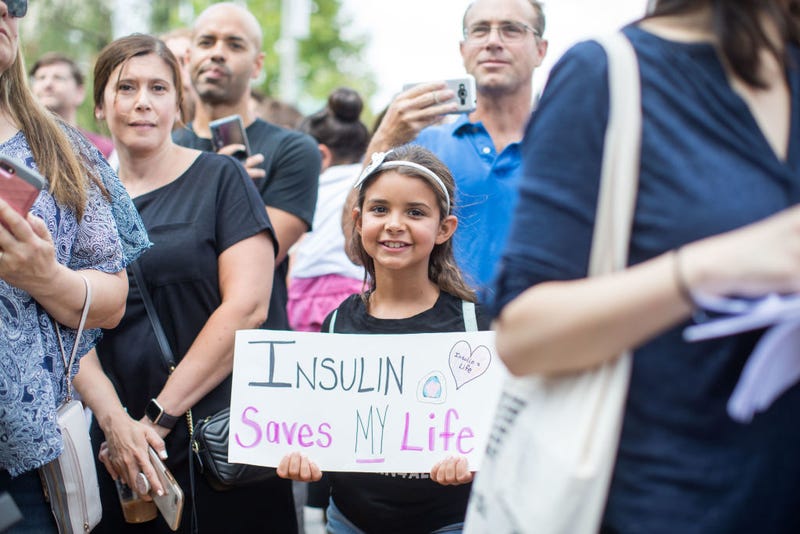
A bill that would cap the cost of insulin at $35 a month was passed Thursday by the U.S. House of Representatives and is now headed to the Senate.
Insulin is a hormone made inside the pancreas that helps regulate blood sugar levels. People with type 1 diabetes have a pancreas that does not produce insulin and people with type 2 diabetes have bodies that do not respond well to it.
People with type 1 diabetes have a pancreas that does not produce insulin and people with type 2 diabetes have bodies that do not respond well to it.
For both conditions, insulin therapy is necessary, though amounts needed may vary. However, the price of insulin nearly tripled between 2002 and 2013, according to the American Diabetes Association (ADA).
“One in four Americans living with diabetes reported rationing their insulin to pay for other life essentials like rent, utilities, daycare, and food,” said an ADA statement released last month in support of the federal cap.
“Rationing is extremely dangerous and can lead to a deadly condition known as diabetic ketoacidosis,” according to the Right Care Alliance non-profit. “Four people died in 2017 while rationing their insulin. Four more died in 2018. Five died in 2019.”
According to the non-profit and non-partisan research organization Rand Corporation, one unit of insulin cost nearly $99 in the U.S. as of January 2021, compared to $12 in Canada.
A statement issued Wednesday from the office of U.S. President Joe Biden said that insulin costs less than $10 a vial to manufacture.
“American families deserve peace of mind knowing their insulin costs will not skyrocket when they or their loved ones change insurance, and no family should be forced to choose between buying insulin and putting food on the table or paying other bills,” said the statement.
More than 11% of Americans – around 37 million people – have diabetes, according to the Centers for Disease Control and Prevention.
“This bill limits cost-sharing for insulin under private health insurance and the Medicare prescription drug benefit,” said a summary of the House legislation, which was introduced Feb. 25 and sponsored by Rep. Angie Craig, a Democrat from Minnesota.
Cost-sharing under private health insurance for a month’s supply of selected insulin products is capped at $35, or at 25% of a plan's negotiated price (after any price concessions) – whichever is less. If the bill becomes law, this will begin in 2023. It would also cap cost-sharing under the Medicare prescription drug benefit for insulin products.
“Currently, the Centers for Medicare & Medicaid Services is testing a voluntary model under the Medicare prescription drug benefit (the Part D Senior Savings Model) in which the copayment for a month's supply of insulin is capped at $35 through participating plans,” said the bill summary. “The model is set to expire on December 31, 2025.”
Some states have already approved copay cap legislation.
Overall, 232 representatives voted in favor of the bill Thursday and 193 voted against it. All “nay” votes were from Republican lawmakers, though 12 Republicans did vote in favor of the legislation.
“This bill is an exemplar of the fact that they want the government to control our lives in every way they possibly can,” said Rep. Virginia Foxx, a Republican from North Carolina, who called the legislation “a massive power grab that will lead our country one step closer to socialized medicine,” according to NBC News.
AHIP, a trade association of health insurance companies claimed in a Thursday statement that the bill “unfortunately does nothing to lower the price of insulin but simply shifts costs to others through higher insurance premiums and copays.”
However, Biden – who will need to sign the bill if it passes in the Senate – said during his State of the Union address last month that he believes it will improve the lives of Americans with diabetes.
“Let’s cap the cost of insulin at $35 a month so everyone can afford it,” the president said.
LISTEN on the Audacy App
Sign Up and Follow Audacy
Facebook | Twitter | Instagram